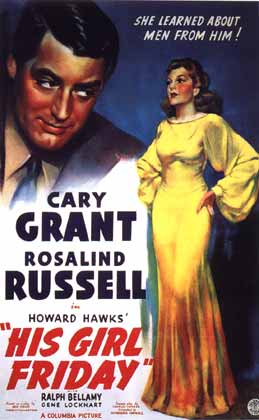The 1943 film The Leopard Man is set in a small town in New Mexico. It’s a place that seems to be hidden away from much of the modern world and where the cultures of Mexico and America mix, occasionally with unease. Jerry Manning (Dennis O’Keefe) is an American publicity agent who is dating a nightclub performer named, Kiki (Jean Brooks). Kiki has a rivalry with another performer, the far more flamboyant (read: interesting) Clo-Clo (Margo). Jerry, however, feels that he’s come up with the perfect way for Kiki to upstage Clo-Clo. Jerry has rented a leopard!
Unfortunately, it soon becomes obvious that neither Jerry nor Kiki knows how to handle a leopard. Clo-Clo startles the leopard with her castanets, causing the leopard to escape and flee into the desert. Now, Jerry has two problems. Not only is Kiki mad at him but the leopard’s owner, Charlie (Abner Biberman), expects Jerry to pay for the missing animal.
Actually, make that three problems. Soon after the leopard escapes, a teenage girl is chased to the front door of her house. When she bangs on the door and begs her mother to let her in, her mother assumes that her daughter is making up a lie to get out of helping around the house. The mother ignores her until suddenly, her daughter screams and blood starts to seep in from under the door…
All of the locals believe that the girl was killed by the leopard. Soon, more people in town are also killed. The police are sure that it’s the leopard but Jerry soon comes to think that something else might be happening. Could it be that something or someone else is committing the murders and attempting to frame the leopard?
A moody and rather fatalistic film that looks truly impressive for a B-movie that was shot on the studio backlots, The Leopard Man is really more of a mystery than a traditional horror film. That said, the film is full of atmospheric and creepy scenes, particularly a lengthy sequence in which the townspeople commemorate the anniversary of a centuries-old massacre. The specter of death, both past and future, hangs over both the town and the film. That’s not surprising when you consider the The Leopard Man was produced by Val Lewton and directed by Jacques Tourneur, the same time that previously created the original Cat People. Much like Cat People, The Leopard Man is a film that’s power comes as much from what we don’t see as what we do see. The Leopard Man is a triumph of atmosphere and tension.
While neither Jerry non Kiki are very interesting characters, the film is full of memorable character roles. The citizens of that small town in New Mexico are all vividly drawn and portrayed, with the film perfectly capturing the quiet desperation of being both poor and forgotten in American society. My favorite character was Clo-Clo. As played by Margo, she is fierce, determined, and — in a few small moments — rather tragic. If they ever remake The Leopard Man, I’m claiming that role right now.


